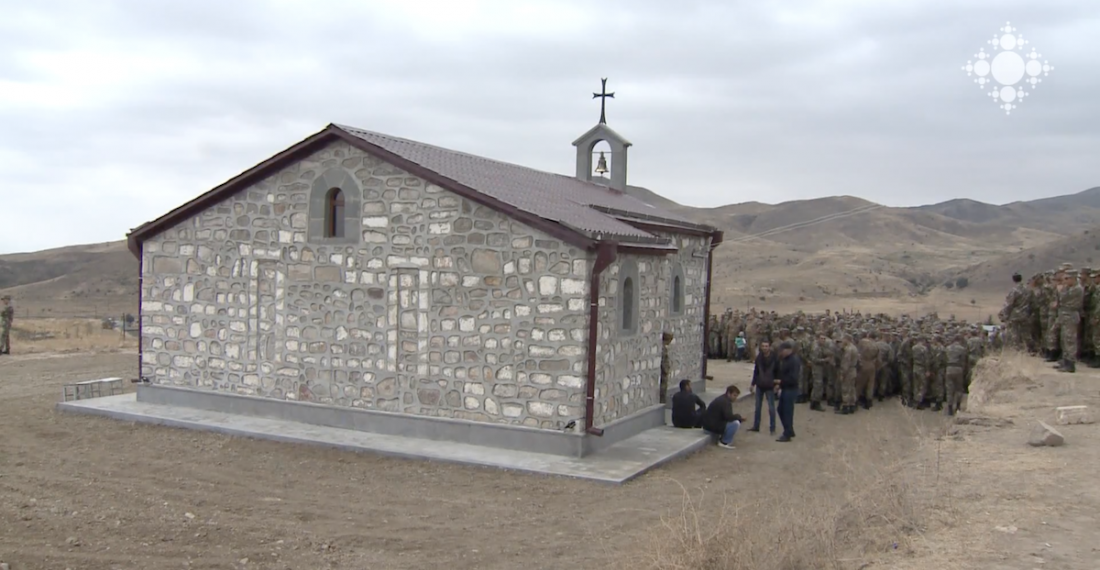Armenia and Azerbaijan continue to trade accusations about the destruction of cultural heritage in the territories in and around Nagorno-Karabakh that have recently reverted back to Azerbaijani control. Both sides accuse each other of desecrating religious and cultural sites.
A small garrison chapel built in 2017 to service the Armenian troops then in the town of Jabrayil is at the centre of the latest controversy.
A video report broadcast on 25 March by the BBC centres around the apparent disappearance of an Armenian church in the town of Jabrayil, Fuzuli, which changed hands during last year’s 44-day war. The church, which is shown in videos when the Azerbaijanis took control following the 44-day war, is now no longer there.
However, whilst initial reactions to the report suggested that the church was of ancient origin, it now appears that the church was only built in 2017 as part of a military facility. Azerbaijani presidential aide, Hikmet Hajiyev has since tweeted a statement that he made in 2017 when the church was constructed, where he referred to the church as “particular provocation from Armenia”.
A statement by the Armenian Ministry of Foreign Affairs condemned the destruction of the church, and stated, “it shows that this manifestation of vandalism was intentional in nature and is reminiscent of the systematic destruction of Nakhichevan's historical and cultural heritage.”
On its part the Azerbaijani Foreign Ministry reaffirmed Azerbaijan’s commitment to the preservation of cultural heritage, but argued that the nature of this church as a military facility, illegally constructed on occupied territory, must be put into context. It noted that the site had been visited by OSCE Minsk Group Co-Chairs in 2017, who “concluded that the chapel had been built as part of a military compound in Jabrayil for use by Armenian soldiers”. As it was built illegally and so recently, the statement disputes that the church can be considered Armenian cultural heritage. The Azerbaijani statement finishes by confirming that discussions are ongoing to allow the United Nations Educational, Scientific and Cultural Organization (UNESCO) access to the region.
Related: UNESCO hoping to send mission to Nagorno-Karabakh
In the BBC report the Armenian Foreign Minister Ara Ayvazyan is questioned on the destruction of the Azerbaijani towns under Armenian control, and asks whether he will apologise for it. Ayvazyan acknowledges that during the war there were “wrongdoings on every side” but attributes any destruction to individuals, not state policy.



